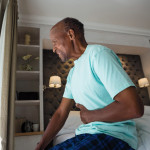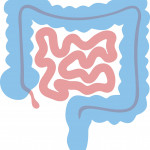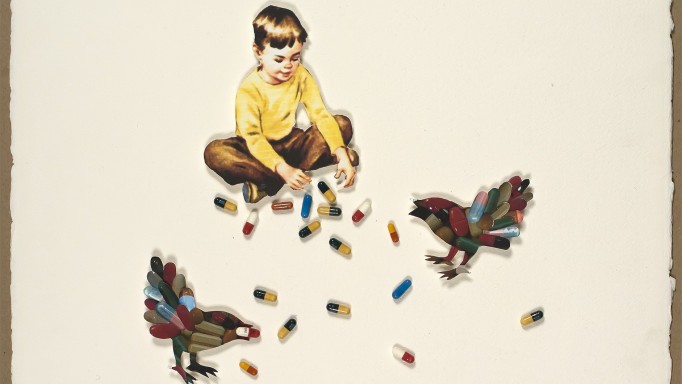Cryptosporidiosis is a disease caused by a group of parasites called Cryptosporidium, or “crypto” for short. Crypto infects the lining of the small intestine and can cause severe diarrhea and an inability to absorb nutrients (malabsorption).
Cryptosporidium is spread by feces. Food or water contaminated with animal feces may carry these organisms. Oral-anal sex can also transmit it. Crypto is more common among men who have sex with men. On occasion, there are outbreaks of crypto that can be traced to a contaminated water supply. This is most common in warm weather climates.
While anyone who’s exposed to Cryptosporidium can get sick from it, diarrhea is usually limited to a few days in people with healthy immune systems. People with weakened immune systems (CD4 counts below 100) may experience longer, more severe bouts of disease that can be difficult to treat. In rare cases, the infection can cause pancreatitis or lung or other infections.
What are the symptoms, and how is it diagnosed?
Watery diarrhea is the main symptom of crypto, along with abdominal pain, nausea, vomiting, cramping, fever, weight loss, loss of appetite, and dehydration. Most cases can be diagnosed by examining a stool sample under a microscope. Sometimes, several samples may need to be taken over several days, especially in milder disease.
How is it treated or prevented?
The best treatment for crypto appears to be starting or staying on potent HIV meds, and trying to keep CD4 counts above 100. This has been shown to resolve diarrhea for many people with HIV. Some experts believe using protease inhibitors can help further.
Unfortunately, crypto can cause malabsorption and may decrease the level of HIV drugs that reach the bloodstream. People should be checked closely until their diarrhea has resolved.
If antibiotics are used to treat crypto, they must be used along with HIV treatment. Otherwise, they’re ineffective. It is also important to guard against dehydration. There are three approaches that can be used when treating crypto: treat the infection, slow the diarrhea, and correct the weight loss.
One antibiotic, nitazoxanide (Alinia), has been approved for children and adults with crypto, at a dose ranging from 500–1,000 mg taken twice a day for 14 days. Another antibiotic, paromomycin (Humatin), at a dose between 1500–2000 mg a day, can also reduce diarrhea associated with the infection. Paromomycin is approved for use in the United States, although not for crypto. Therefore, a doctor can prescribe it off label for cryptosporidiosis.
To help control the diarrhea, different drugs can be used, with clinician supervision. These include: diphenoxylate Lomotil, loperamide (Imodium), paregoric, tincture of opium and Pepto-Bismol. Octreotide (Sandostatin) is not recommended. NSAIDS (non-steroidal anti-inflammatory drugs) such as ibuprofen (Advil, etc.) can also help reduce inflammation.
In the event of weight loss, it might be necessary to treat people with crypto using nutritional supplementation. Unfortunately, many supplements that can be taken by mouth aren’t absorbed properly, thus requiring them to be given through an intravenous (IV) line. This is called total parenteral nutrition (TPN) and, despite its high cost, it can be very effective in providing the body with the nutrients it needs.
Some anabolic agents, such as human growth hormone (Serostim) and anabolic steroids (Deca-Durabolin, Oxandrin, Winstrol, etc.), can be useful in preventing—and perhaps reversing—muscle loss that often occurs in people with infections like crypto.
IRIS (immune reconstitution inflammatory syndrome) has not been reported with crypto—a condition that causes increased symptoms of an opportunistic infection to happen due to starting or switching HIV treatment.
The most effective way to prevent crypto is to avoid its sources—mainly contaminated drinking water and handling feces from pets, animals and small children. Here are ways to help prevent crypto:
- Wash your hands often
- Avoid contaminated food and water from unsafe sources
- Boil water if needed in the home
- Use a water cleaning system with a submicron filter
- Drink bottled water that has been cleaned with a submicron filter
- Use gloves or wash your hands after activities that may expose you to feces (handling diapers, touching pets or animals, gardening, etc.)
- Avoid swimming in or drinking water from lakes and streams
- Avoid eating raw oysters
- Avoid oral-anal contact
- Use a barrier during sex
Are there any experimental treatments?
If you would like to find out if you are eligible for any clinical trials that include new therapies for the treatment or prevention of crypto, visit ClinicalTrials.gov, a site run by the U.S. National Institutes of Health. The site has information about all HIV-related clinical studies in the United States. For more info, you can call their toll-free number at 1-800-HIV-0440 (1-800-448-0440) or email contactus@aidsinfo.nih.gov.
Last Reviewed: January 24, 2019














